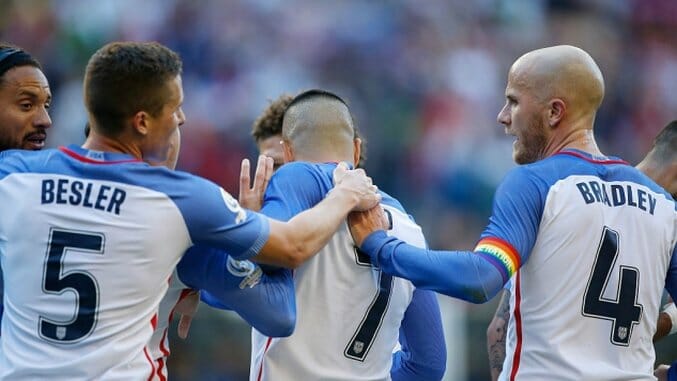On Soccer, Orlando, And Why Gestures Matter
Photo by Otto Greule Jr/Getty
On Saturday, Orlando City FC held a set of tributes in honor of the victims of the mass shootings at Pulse nightclub before their home game against San Jose. Some were fairly straightforward— special t-shirts worn by the players, Pride flags waved in the stands, etc.
But two gestures stuck out in particular.
First, a section in the stands where exactly 49 seats were left empty, with balloons tied to the backs of the seats. And second, a complete stoppage of play in the 49th minute, with players on the pitch halting their runs and standing pat to observe a moment of silence with the fans.
(The 49th minute observance begins around 2:50.)
The Washington Spirit followed suit in their NWSL game at home against the Orlando Pride. Only this time, the silence was replaced by applause.
Thank you, @WashSpirit. #OrlandoUnitedpic.twitter.com/LiRWPNhtCH
— Orlando Pride (@ORLPride) June 19, 2016
Invariably some people will roll their eyes at these kinds of gestures. Some of the complaints are valid, such as the commodification and branding of tragedy and how corporate interests co-opt marginalized identities for profit. Other times, like when certain fans complain about giving “those people” more attention than they deserve, notsomuch.
But the gestures matter. In this moment, they matter a whole lot.

-

-

-

-

-

-

-

-

-

-

-

-

-

-

-

-

-

-

-

-

-

-

-

-

-

-

-

-

-

-

-

-

-

-

-

-

-

-

-

-








































